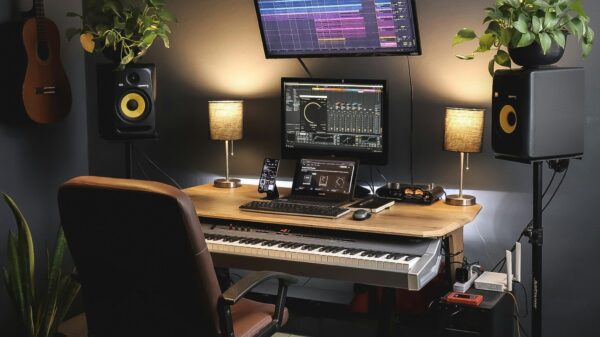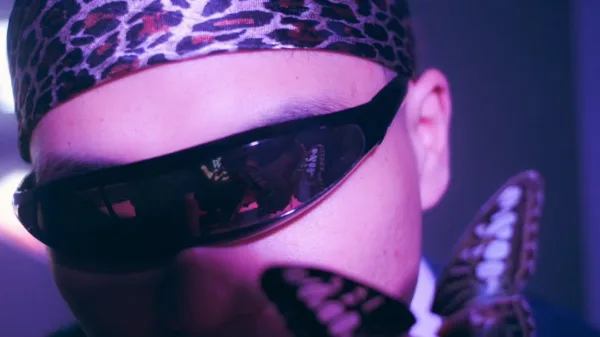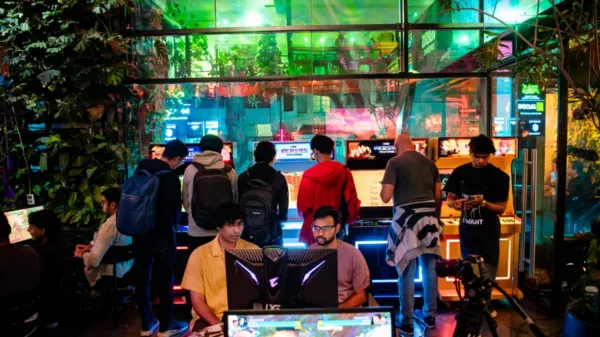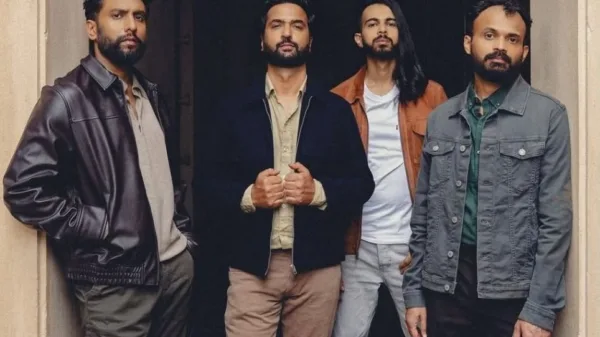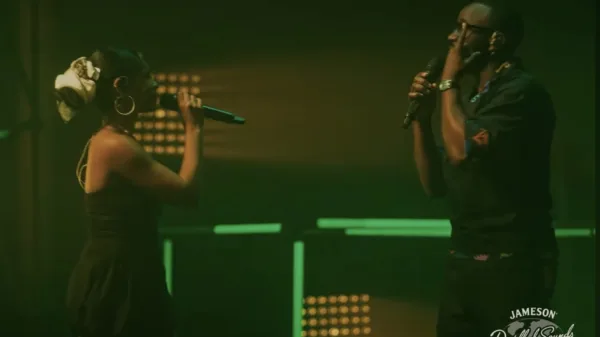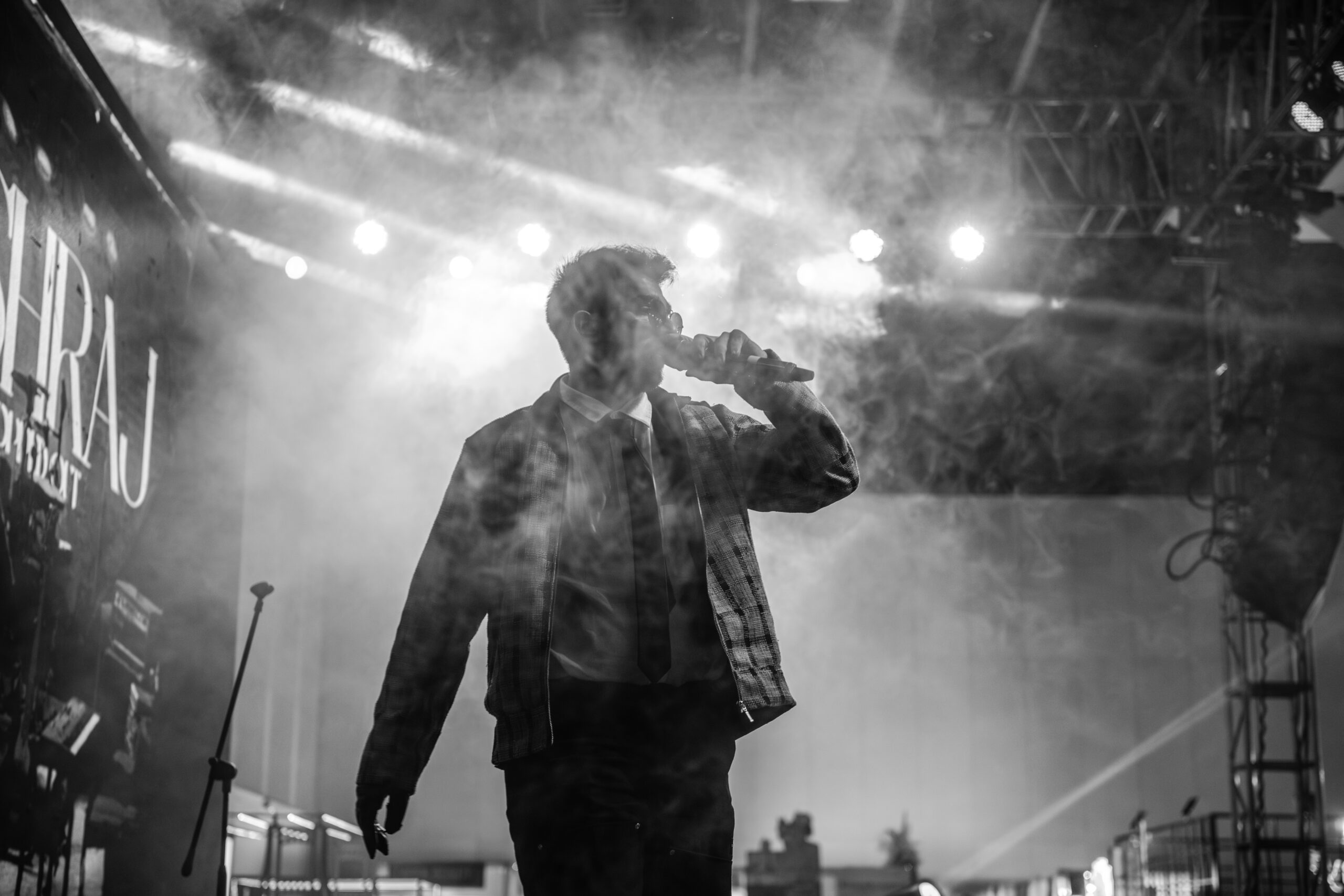Yashraj Mehra, a Bombay-based artist, is known for his creativity and uniqueness in the art that he practices. With two EPs, double packers and various singles, his musicality boasts of his talent. Apart from his diverse discography, he has stellar features on known projects including KSHMR’s “KARAM’, Yungsta’s “Meen” and Chaar Diwaari’s “Teri Maiyat Ke Gaane”. I had the opportunity to have a conversation with Yashraj and address aspects of his musicality and artistry.
1. Before starting your journey as an artist, who did you listen to? What made you feel that you can make music too?
I remember when I was a kid, my mother used to play a lot of artists like Rahat Fateh Ali Khan and Jagjit Singh on her cassette, and gradually, just because of being present there, I subconsciously started to remember those words and terms. My dad, on the other hand, was a huge Michael Jackson fan. He introduced me to the pop artists of the West like Jackson and Elvis, so I have been exposed to that sort of genre too. Ever since I was a kid, I have always had that will to sing because I feel I have so much to say. Music has been that medium for me to express and present my thoughts. Now the problem was that I couldn’t sing *laughs*, I mean it was very unpleasant since I just couldn’t attain those vocals. That’s when Hip-Hop or Rap to be more specific, came into my life. I realized I could present my poetry through this medium, I just needed to twitch and turn a few things here and there. This was also the time when the scene was growing, it wasn’t established but the word was spreading at its pace. My friends were a big factor in this as well, they used to make me sit along with them and listen to all of these full-length albums and LPs like “Section 80” or “2014 Forest Hills Drive”. As a listener, I learnt the art of consuming an album and I always used to try to figure out the artist’s intent and narrative behind it. Post that I gradually started making my own stuff.
2. Your artistry has a lot of poetic stuff as well. What is the writing process for you in these particularly lyrical tracks?
I feel the first knack for writing was in English for me, and I feel it’s the same case for most of the artists in DHH. The reason was the influence that Western music has, but then later on I realised that the significance of writing in Hindi was much greater. Hindi or Urdu poetry has that essence, it just feels more understandable and the content feels heavy in terms of words and the way they sound. What might seem like pretty simple and shallow writing in English can be interpreted as poetic and metaphorical in Hindi if you are good at structuring it. Also, while the scene was growing, rappers like DIVINE and D’Evil were emerging from the whole Gully scene and I too, was a middle-class boy from Ghatkopar, However, I just couldn’t go with that idea because it wasn’t me, didn’t speak like that and I couldn’t stick to the template. Like I don’t even consider ‘Takiya Kalaam’ (single) as a song because it’s simply a piece of poetry on a jazzy instrumental, that was the intent I had. Poetry was never about being too flowery and complex, for me, it was to present simple and lucid perspectives in my own way.

3. You are based in Bombay, but you have a strong foothold in the Delhi scene too. Being associated with both the cultures and cities, do you feel that there is any cultural difference (in terms of Hip-Hop) between the two?
I mean, Mumbai is the financial capital for a reason. If I wake up one day and feel like I want to be known amongst the people, I’ll realize that Shah Rukh Khan lives in this city. If I feel I want to earn money and get rich, the fact that Ambani lives here gets in my head. The grind or hustle and the pressure it brings are very prevalent here. Also, the Bombay scene had Gully Boy, and even though it was a blockbuster hit around that time and it did help in the culture being recognised in the mainstream spaces, a lot of the acts in the film weren’t quite successful post-release. On the other hand, Delhi didn’t have any such exposure, yet they understood that this was a long-term game. They have had that hunger and I understand it because, even though I am Mumbai-based, I belong to the northern lands, I am a Punjabi after all. I don’t feel there is a division in terms of vision or quality in that aspect, however, I feel there is a mindset difference between the two cities and scenes. There are differences in terms of writing and lyrics as well, the way one writes their lyrics is different from the other because of the contrasting dialects or even languages in some cases. And I think that the whole community should be more respectful and understanding of these differences, we have to be more culturally accepting and appreciative in order to grow this scene.
4. Your way of talking or rapping about ‘hustle’ and the hunger to achieve more is way different from the others in your city. How do you stand out in that regard?
Rap is not just the life that I’m living right now, it is the life that I have always wanted to live. I am privileged to have that platform and the ability to do whatever I want to do. But it wasn’t the case always, I mean I have shot freeverses from a Samsung device. Music has also been about presentation, I love the creative aspect involved in it too. I love packaging stuff, making music videos and all that. Moreover, even though I love old-school Hip-Hop, I come from a different generation. I admire Lil Yachty, Tyler The Creator, ASAP Rocky and all these guys because of their fresh and novel ideas. In our scene too, there are so many untapped stories, a lot of narratives that haven’t been spoken about, you know? That is where Besabar or Rakh comes into the picture, it is a result of a lot of experimentation with the intent of breaking the norm. I have always been in love with creativity and the standing out would be derived from that.

5. What do you rap for? What do you represent?
That’s a very interesting question, you know I always used to circle back on this. Until recently, where I believe I represent ‘giving a fuck’, in all aspects. I Like caring about things and I am a nerd in that way. Be it production, be it visuals, be it the music or the ideas that go into it, I care a lot about all of those things. I wouldn’t mind sitting on the 15th edit of a video just to make sure it turns out the way I want it to. In the scene full of people where ‘not caring’ is considered cool, I talk about caring and being bothered. I always strive to find the answers and rap about things that are unspoken about just because I bother about that side of the spectrum.
6.How do you have such a diverse discography? There are chill and laid-back tracks like ‘Hausla’ and ‘Dhundhala’ that are hits, and there are poetic pieces like the ones in ‘Takiya Kalaam’ and you also have energetic and hype tracks like ‘Ladke Convict’ or ‘Besabar’ etc. How do you create such different stuff?
Even I feel that people might consider me crazy because of such drastic switches, and I kinda love that. Please expect nothing from me, I will venture into different sounds and sonics whenever I want to because, for me, music as a medium of expression is just as significant. The reason I made Dhundhla wasn’t because I wanted to make something of that sort, it’s because I was at Dropped Out’s place and we were chilling. The track was unexpectedly successful and got me good numbers and all that, and then I decided to roll out Takiya Kalaam because I wanted to deliver a perspective in that sense. I feel that I’m still practising this and trying to see what I can pull off next. I remember back when we were starting out, Gravity asked me why I was freestyling so much and I answered that one day I might be in a studio with a big producer and he would expect me to rap my heart out if that’s a way to say it. And that is exactly what happened with the KSHMR thing. So it has been that way for me, although I feel that I’ll probably change my mindset now that I am done proving myself, I’d prefer making music for myself with concepts and perspectives that are relevant to me.
7. You have had your achievements and gained numbers that get you to the mainstream side of the scene. Now, being one of the rappers who have their numbers and fanbases, what factor do you think sets you apart?
Even though I have a decent number of monthly listeners and streams and my audience and other people might consider me a ‘Mainstream Artist’, I don’t. There is a lot that I still have to achieve and honestly, my dreams won’t allow me to settle for less. I feel that I haven’t even scratched the surface. My artistic self is way different from my online presence my numbers or the way people perceive my musicality, I have yet to live that mainstream lifestyle. The goal is to build a bungalow with this rap money you know? My definition of mainstream is very different, I have never ‘tried’ to make a hit track and blow up, whatever came out as a hit was all natural. I tend to push my limits creatively to curate whatever I have in mind in the best possible way, and honestly, until tracks like Besabar and Rakh have crossed 50 million streams and I don’t create jams and crowds just by my presence, I will not settle. This is just a way of saying what levels I am yet to achieve, of course, I do not chase numbers and all that, but you get it *laughs*.
8. As an artist, What is that one thing that will make you think you’ve made it in the scene? Is there any specific ambition?
Well, it does boil down to materialistic things, at the end of the day. The goal is to make this a lifestyle, a way to say it is I want to ‘wear’ my tracks as my clothes *laughs*. I want to provide for the family, provide for my brothers who helped me in my way, and provide for the community too. I would love to have a cult but I dream of having a community of my own you know? I would just want to make sure that I don’t turn out to be complacent in that sense, I’m afraid of that.
An ambition that I am chasing would be to sell a whole stadium out. I have opened a lot now but I want to close with a performance you know, shut down the whole thing. I would need that big and loyal fanbase to do that and that is what I’m after.
9. Although I haven’t been to one, I know that your shows are crazy. Honestly, you seem like a chill guy, shy even. But on stage you have a different energy and persona together, what do you think causes that? Is that an act or a whole different side to you?
I’ve been on stage for most of my life, this thing goes back to when I was in school. I used to host events and participate in drama and all the other activities. I would feel very confident on stage, even in my college days, I used to host music events, invite the artists on stage and freestyle on stage with beatboxers too. So I have had a history of being on stage, but now the only difference is that I am somebody who is supposed to perform. I’m not a host anymore, I am the reason the audience has pulled up to the venue, that is a part and parcel of the game. I just celebrate being on stage, at times I feed off the energy of the people present to watch me live, and at times when people aren’t present, I perform with the DJ or the other acts that are there. I truly am grateful whenever I am offered the chance to perform and be on stage, it has always been like that. But that doesn’t mean that I am way too chill about it, at times if you catch me backstage, you’ll notice that I am nervous and sweating with that performance pressure *laughs*.
10. What’s in store for this year?
Of course, there will be projects rolling out. Also, I believe I will be perceived as a secure artist too. I will be working on newer sounds and sonics. I think I have proved myself enough, so now it’s time to do what I want to do.














